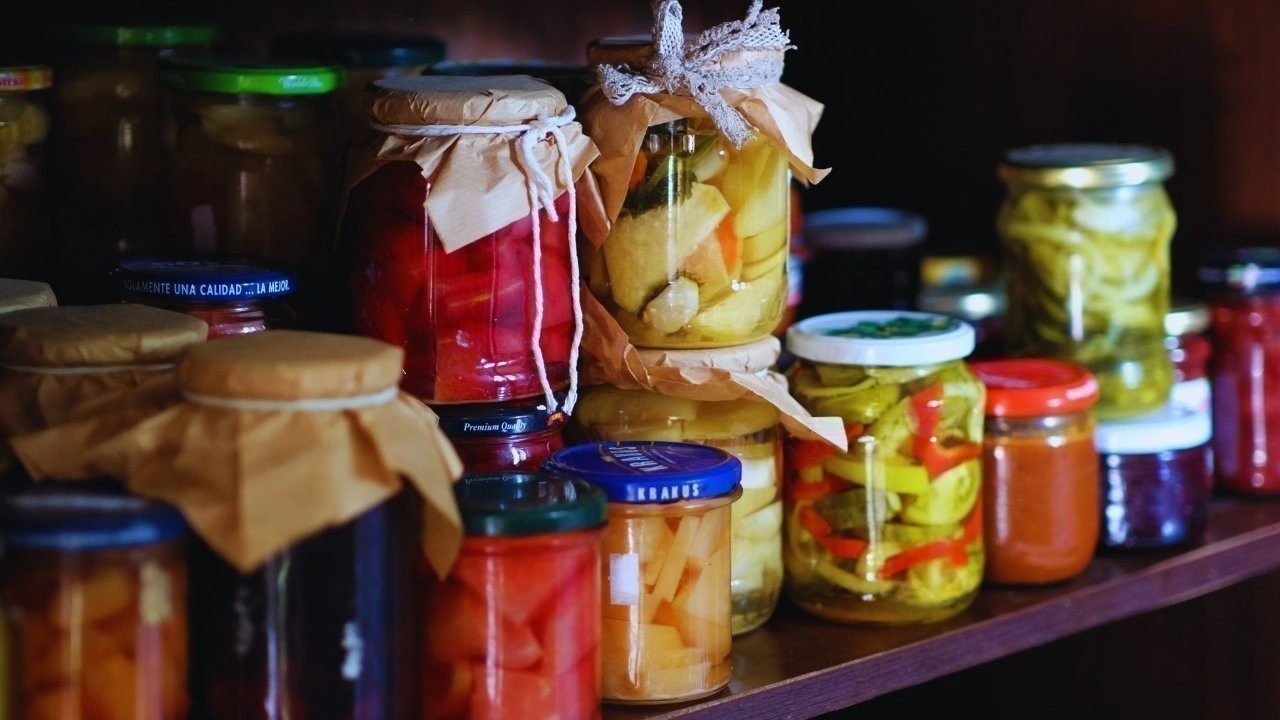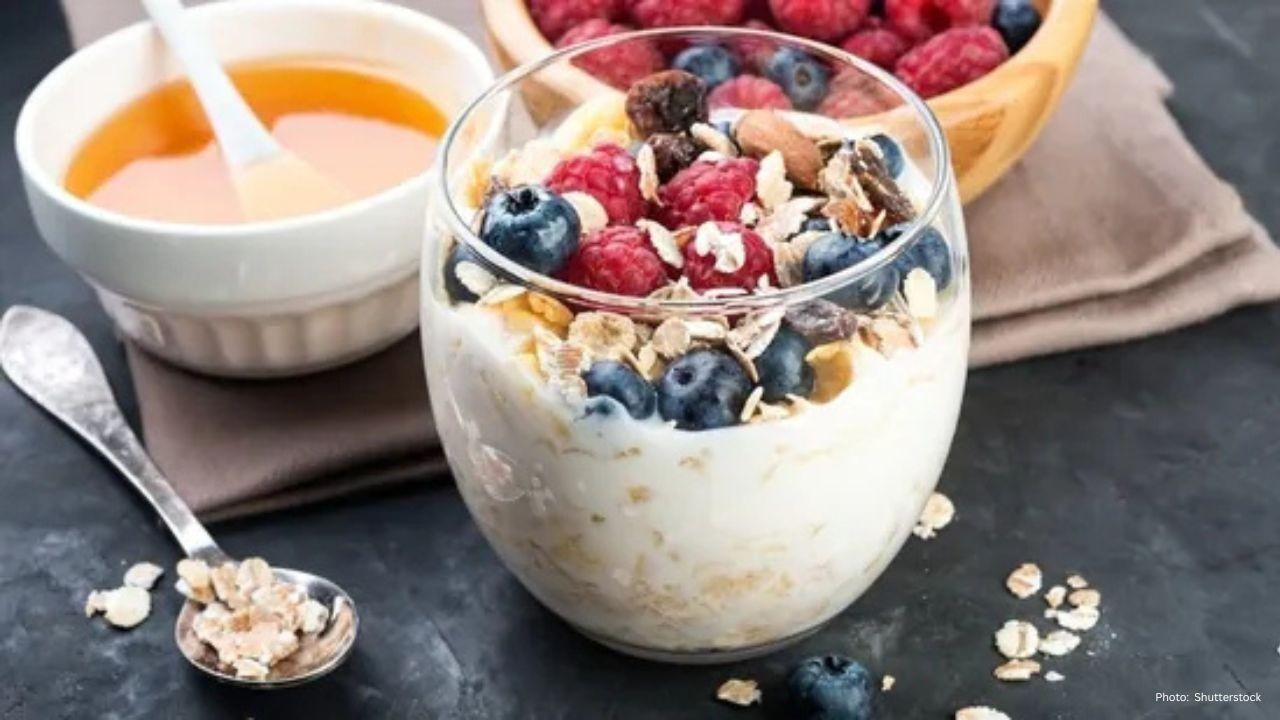
Post by : Anis Karim
Long before refrigerators, packaged snacks, and industrial food systems existed, humans relied on fermentation to preserve ingredients and enhance flavor. Every culture across history has had its own tradition — yogurt and lassi in India, kimchi in Korea, sauerkraut in Germany, miso and natto in Japan, kombucha in ancient China, sourdough in Europe, pickled vegetables across the Middle East, kefir in Eastern regions, and countless others.
Today, these traditions are more than cultural treasures; they are pillars of modern wellness. With rising rates of lifestyle-related illnesses, weakened immune defenses, digestive discomfort, and stress-driven inflammation, fermented foods have returned as powerful allies. This revival isn’t nostalgia — it’s science meeting tradition.
We are rediscovering that the secret to immune resilience often begins in the gut — and fermentation is one of nature’s most effective ways to nourish it.
Modern wellness has taught us something surprisingly ancient: the gut is the seat of our immunity. Nearly seventy percent of the immune system resides in the gut environment, influenced by trillions of microorganisms living inside us.
These microorganisms — collectively known as the gut microbiome — are not passengers; they are active partners in immunity. They defend against harmful microbes, regulate immune response, help build antibodies, support inflammation control, and influence how we absorb nutrients.
Fermented foods feed this ecosystem. They provide beneficial bacteria, enzymes, organic acids, and bioactive compounds that nourish and diversify gut flora. In simple terms, the healthier your gut environment, the stronger your defense against infections, inflammation, and chronic disease.
Where immunity weakens, the gut usually needs attention.
Fermentation is a natural process where microorganisms like bacteria or yeast break down food components — typically sugars and starches — into beneficial compounds. This process transforms food in three powerful ways:
1. Increases Nutrient Value
Fermentation boosts vitamins, produces enzymes, and makes nutrients easier to absorb. For example, fermented dairy is often better tolerated by people sensitive to lactose.
2. Creates Probiotics and Bioactive Compounds
The living cultures produced during fermentation help increase friendly bacteria in the digestive system.
3. Makes Food More Digestible
Fermentation pre-digests certain components, easing the burden on the stomach and intestines.
Nature does half the digestion for you.
These transformations create food that nourishes deeply — not just through calories, but through biological intelligence.
Let’s look at several traditional fermented foods and the immune advantages they bring.
Rich in live cultures, yogurt and kefir support gut flora, improve digestion, and assist nutrient absorption. Kefir offers a broader diversity of microbial strains, often making it a stronger probiotic source.
Cabbage-based ferments are packed with fiber, antioxidants, and Vitamin C. Kimchi adds garlic, ginger, and chili — naturally immune-supportive ingredients.
In India and parts of Southeast Asia, fermented grains form the foundation of breakfast traditions. Lactic acid fermentation improves digestibility and boosts nutrient availability.
These foods carry beneficial enzymes, amino acids, and active cultures that promote gut healing and immune balance. Tempeh also adds plant-based protein.
This fermented tea provides organic acids and antioxidants that help gut cleansing and microbial support. It also encourages hydration — an underestimated immune factor.
Traditional salt-brine pickles support digestion and microbial diversity. These differ from vinegar-preserved pickles, which don’t always offer live beneficial cultures.
Each of these foods came from survival needs. Today, they survive as medicine in our kitchen.
Good bacteria help keep harmful microbes in check, reducing infection risk and supporting a balanced immune response.
A strong gut lining encourages better antibody production, helping the body recognize and fight threats.
Many fermented foods help regulate inflammation, a major driver of chronic illness.
Immunity depends on proper nourishment. Fermentation enhances vitamin B, vitamin K, iron, zinc and calcium uptake.
Fermented foods generate compounds with antiviral, antibacterial, and antifungal properties — natural defense via natural food.
Fermentation nourishes immunity not through force, but by creating internal harmony.
The gut isn’t only connected to immunity — it is linked to the brain as well. This means mood, energy levels, stress response, and immunity are connected. When digestion suffers, stress rises; when stress rises, immunity weakens. Fermented foods indirectly support emotional resilience by nurturing gut bacteria that help produce neurotransmitters like serotonin.
Better gut health often means calmer mood, better sleep, and stronger immunity.
Wellness is not in isolation — every system is connected.
Despite medical and technological advances, immune strength in the general population is challenged today by:
– processed foods
– excessive antibiotics
– environmental toxins
– lack of fiber and greens
– stress and poor sleep
– sedentary lifestyle
– sugar-heavy diets
– low microbial diversity in food environments
Fermentation counters many of these influences naturally. It reintroduces microbes that industrial processing removes. It supports digestion weakened by stress. It anchors traditional wisdom in a fast-paced age.
Modern life may challenge the gut — but ancient foods help restore it.
While beneficial for nearly everyone, fermented foods can be especially helpful for:
– people with weakened immunity
– those recovering from infections
– individuals with digestive discomfort
– frequent antibiotic users
– people under stress
– older adults with declining gut flora
– individuals adjusting to lifestyle shifts like travel or dietary change
They serve not as cure-alls but as consistent, supportive nourishment.
Fermented foods are powerful. Begin with small servings to let the gut adjust.
Look for unpasteurized and naturally fermented products when possible.
Rotate yogurt, pickled vegetables, fermented grains, and kombucha instead of relying on just one.
Fiber feeds probiotics. Combining fermented foods with fruits, vegetables, and whole grains enhances benefit.
Fermentation rewards consistency — a spoon of yogurt or serving of pickles daily can shift long-term health.
People who incorporate fermented foods often notice:
– lighter digestion
– improved bowel rhythm
– reduced bloating
– clearer skin
– more stable energy
– enhanced mood and focus
– fewer seasonal infections
– calmer gut after stressful days
These subtle but meaningful shifts often mark deeper internal resilience.
While fermented foods are generally safe, certain individuals should be mindful:
– those with histamine sensitivity
– people with active severe gut disorders
– individuals new to probiotics may experience temporary gas or bloating
In such cases, adjusting portion size and frequency helps. For those with medical conditions, personal evaluation or professional guidance supports safe adoption.
Beyond science, fermentation is tradition. It represents patience, craft, time, and natural intelligence. Preparing or consuming fermented foods often connects us to heritage, family rituals, and the comfort of simplicity.
These foods remind us that health isn’t only physical. It is emotional, cultural, communal, and sensory. Fermented foods teach us to slow down, respect natural rhythms, and coexist with beneficial life forms rather than sterilize everything away.
Healing is not just chemical — it is cultural and mindful too.
As the world becomes fast, sanitized, and processed, fermentation offers grounding. It reminds us that true nourishment is alive, evolving, and deeply connected to nature. Fermented foods support immunity not by force but by partnership — feeding the microbiome, calming inflammation, enhancing nutrition, and encouraging balance across body systems.
In every spoon of curd, every jar of homemade pickle, every bowl of miso soup, lies a quiet revolution — one that protects, heals, and roots health in ancient practice and modern understanding.
Protecting immunity isn’t about exotic trends or expensive supplements. Sometimes, it begins in the humble kitchen, with jars quietly bubbling, ingredients transforming, and life multiplying under natural laws.
Bring fermentation into your lifestyle, and you nourish not just the body — but the very foundation of long-term resilience.
This article is for informational and editorial purposes. Fermented foods may interact differently depending on individual digestive tolerance and health conditions. Anyone with specific gut disorders, immune conditions, or dietary concerns should seek personal guidance from a qualified healthcare professional.

Beyond Fingerprints: The Rise of Voice, Vein and Behaviour-Based Biometrics in Everyday Life
An in-depth exploration of the next generation of biometric security — from voice patterns and vein

NHS Surgeon Explains Why Miso Soup Is Great for Gut Health and Weight Loss
Learn how miso soup can improve gut health, support weight loss, and make you feel full for longer,

Dietician Shares 5 Foods to Boost Metabolism Naturally: Quinoa, Greek Yoghurt and More
Learn which 5 everyday foods can naturally improve your metabolism, help burn calories, and increase

Akasa Air to Launch New International Flights from Delhi, Expands Fleet
Akasa Air plans international departures from Delhi, eyeing Singapore, Indonesia & more, while expec

Aditi Rao Hydari Shares Her Makeup Mantras: Red Lips, Simplicity, and Confidence
Aditi Rao Hydari shares her beauty secrets at Nykaaland, highlighting red lipstick, minimal makeup,

Warren Pushes Pentagon Repair Rights, Targets Defense Lobby
Senator Warren urges defense firms to support military repair rights, aiming to cut costs, speed mai

US Woman Born With No Brain Defies Odds, Celebrate 20th Birthday
Alex Simpson, born with no brain, celebrates 20th birthday, defying doctors’ odds. Her rare hydranen

Saba Azad Cheers Hrithik Roshan's Niece Bakery Launch
Hrithik Roshan's niece Suranika opens The Moon Beam Bakery; Saba Azad shares a heartfelt Instagram s

Jets Make History with Two Special Teams Touchdowns
The New York Jets made franchise history with two special teams touchdowns in one quarter, defeating

Chargers Beat Steelers 25-10 as Herbert, Defense Shine
The Los Angeles Chargers beat the Pittsburgh Steelers 25-10 at home. Justin Herbert impressed while

Rams Beat 49ers as Adams Injures Oblique Late in Game
The Los Angeles Rams beat the San Francisco 49ers 42-26, but Davante Adams left in the fourth quarte

Jurel’s Batting Form Puts Pressure on Team Selection
Dhruv Jurel’s great form before the South Africa Tests gives India’s selectors a tough choice as Ris

Indian GM Karthik Marches into FIDE World Cup Fourth Round
GM Karthik Venkataraman defeated Bogdan-Daniel Deac in tiebreaks to reach round four of the FIDE Wor

Ryan Williams Joins Indian Camp After Citizenship Change
Ryan Williams, who gave up his Australian citizenship, has joined India’s football camp in Bengaluru

Japan Goalkeeper Zion Suzuki Withdraws Due to Injury
Japan’s goalkeeper Zion Suzuki withdraws from matches against Ghana and Bolivia after suffering wris